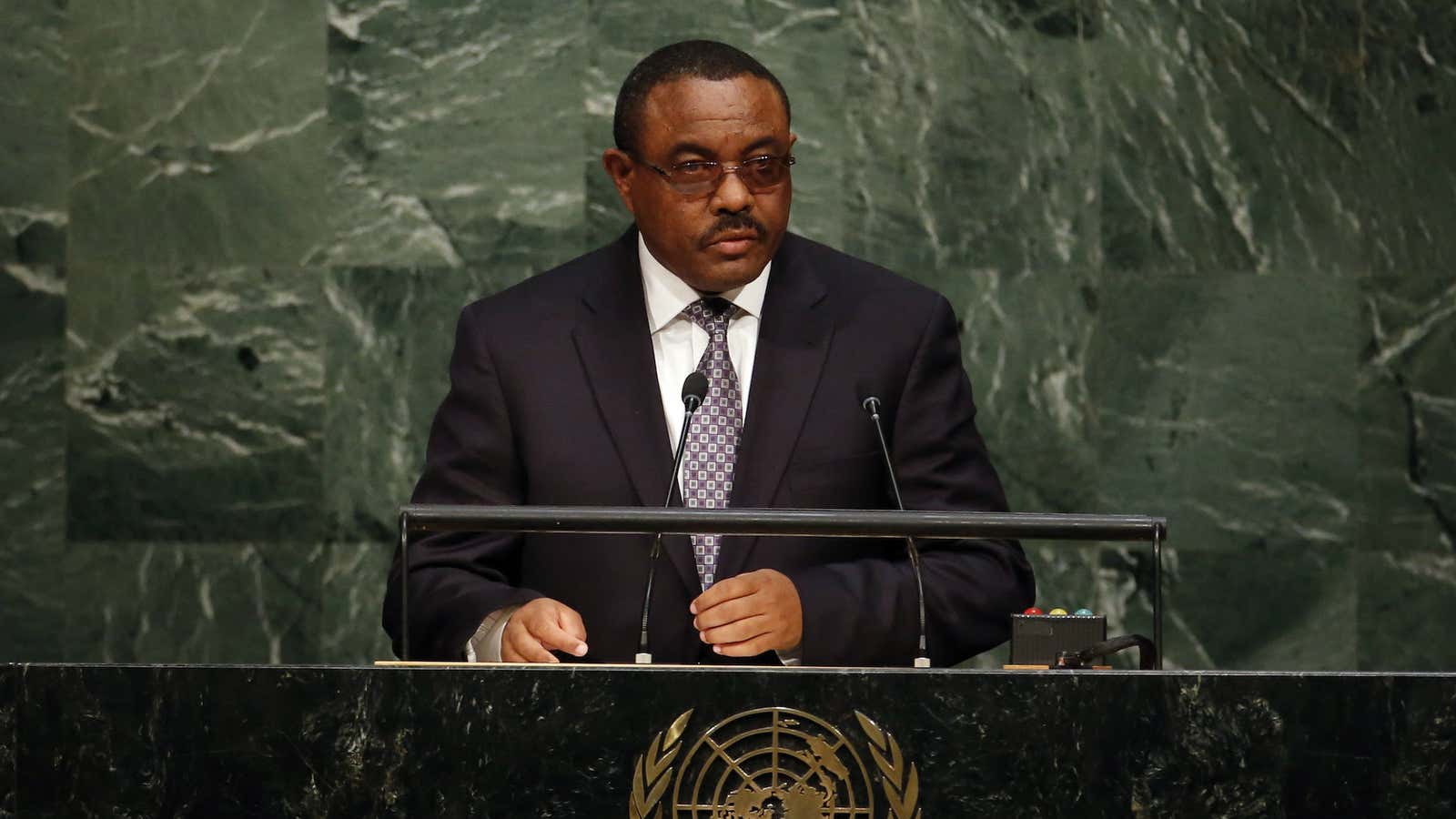With 100% of votes in parliament, Ethiopian prime minister Hailemariam Desalegn has been re-elected to a second term. But Hailemariam’s sweeping win isn’t so much a vote of confidence as another example of how democracy is lagging in one of Africa’s fastest growing economies.
Hailemariam’s win was assured by a parliament controlled by his coalition, the Ethiopian People’s Revolutionary Democratic Front (EPRDF), which has ruled the country for the past two decades and now holds all 547 seats in the legislature.
For the decade ending in 2013, the country averaged a rate of 10.8% expansion. Hailemariam has promised annual economic growth of “about 11%” for the next five years and to help the country reach “middle income” status, as opposed to being labeled a developing country, by 2025.
Yet, Ethiopia still ranks among the 10 worst countries on the continent for human rights and public participation, according to the Mo Ibrahim Index (pdf) of African Governance, released yesterday. International observers have been barred from attending Ethiopia’s elections. Meanwhile, domestic media and civil society groups have been muzzled through laws such as the anti-terrorism proclamation.
Hailemariam continues the tradition of political dominance by a few. Today, he announced his new administration of 30 ministers and officials—and only eight had not previously served in his cabinet. Hailemariam’s predecessor, Meles Zenawi, was in power for 17 years, until his death in 2012.
